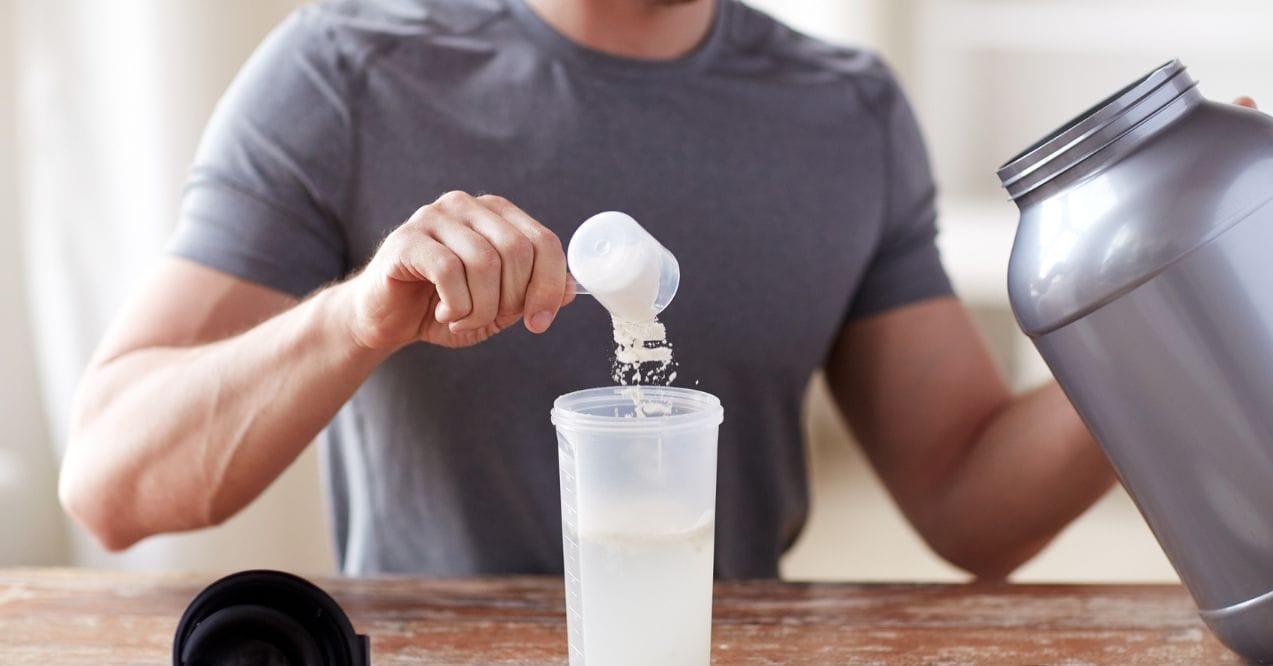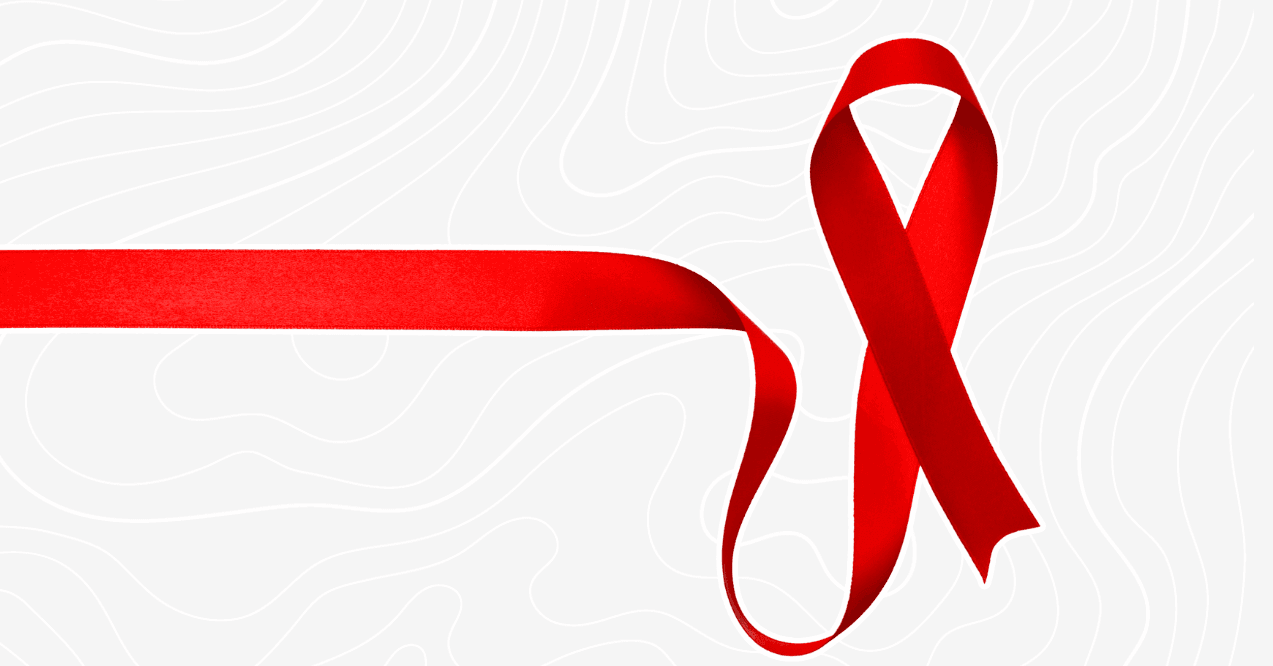Pre Workout For Beginners: The Ultimate Guide

What is Pre Workout?
New to the gym and wondering if pre-workout is right for you? These supplements can feel intimidating, but they’re simply designed to help you train harder, stay energized, and improve performance.
Pre workout supplements typically come in powders or drinks and contain a mix of ingredients that enhance energy, focus, and endurance during workouts.
Common ingredients in pre-workout supplements include:
- Caffeine for energy and alertness
- Beta-alanine to help muscle endurance
- Creatine for power output
- B-vitamins for energy metabolism
- Amino acids to support muscle function
Benefits
Taking pre-workout supplements may offer several advantages:
- Increased energy – Feel more motivated to tackle your workout
- Improved endurance – Push through challenging exercises with less fatigue
- Enhanced focus – Stay mentally sharp throughout your training session
- Better muscle pumps – Experience increased circulation in muscles
- Potential strength gains – Some ingredients may support power output
Is Pre-Workout Suitable for Beginners?
Jumping into the pre-workout scene can be exciting for fitness newcomers, but it’s important to start with the right approach. Here’s what beginners should keep in mind:
Start Small – When it comes to pre-workout, less is often more for beginners. Try half a serving to see how your body reacts. You can always increase the dose later if needed.
Listen to Your Body – Everyone’s different! Pay attention to how you feel during and after your workout. If something doesn’t feel right, it’s okay to adjust or stop.
Chat with a Pro – Before diving in, it’s a good idea to talk to a fitness expert or healthcare provider. They can give you personalized advice based on your health and fitness goals.
Another common concern for beginners is feeling extremely fatigued or sluggish after a workout. If you’ve ever experienced Legs So Heavy After a Workout, it might be due to factors like lactic acid buildup, electrolyte imbalances, or improper recovery. Paying attention to your pre- and post-workout nutrition can help prevent that drained, heavy-leg feeling.
Best Ingredients for Beginners
Certain ingredients are more beginner-friendly and provide effective support without overwhelming side effects:
- Caffeine. The classic energy booster. Start with 100-200mg to feel alert and focused without the jitters. That’s about 1-2 cups of coffee worth.
- Creatine. This naturally occurring compound helps with quick bursts of energy. It’s safe for most people and supports muscle growth, making it great for strength-focused routines like a chest and tricep workout or compound movements.
- Beta-Alanine. Known for its performance-enhancing effects, it might cause a harmless tingling sensation. Don’t worry – that’s normal!
- BCAAs (Branched-Chain Amino Acids). These may help with muscle recovery, making your post-workout feel a bit easier.
- Non-Stimulant Options. If you’re sensitive to caffeine, look for stimulant-free pre-workouts. They often include ingredients like citrulline or beetroot extract for a gentler boost.
Looking for a pre-workout that packs a punch without overwhelming beginners? Our Pre Workout formula at Trumeta hits the sweet spot. With 200mg of caffeine per serving, it provides the energy boost you need without the jitters. The beta-alanine supports muscle endurance, while L-Tyrosine enhances focus.

We’ve included beginner-friendly ingredients like beet root powder for improved circulation in muscles and ginseng extract for an extra energy kick. The 1g of creatine per serving helps with power output, perfect for those quick bursts during your workout.
What Does Pre Workout for Beginners Feel Like?
Pre-workout can create a range of physical and mental sensations. Here’s what you might experience:
- Increased energy and alertness – Helps you feel ready to tackle your workout.
- Tingling or itching sensation – Often caused by beta-alanine, this harmless effect is most noticeable in the hands and face.
- Enhanced mental clarity – Many users report improved focus and concentration during exercise.
- Greater motivation – You may feel more driven to push through challenging parts of your workout.
- Improved endurance – Some users find they can train for longer without feeling fatigued.
It’s quite important to choose a pre-workout that aligns with your fitness goals and tolerance levels. For more detailed information on what to look for in a pre-workout, you can check out this helpful guide: what to look for pre workout?
How and When to Take Pre-Workout?
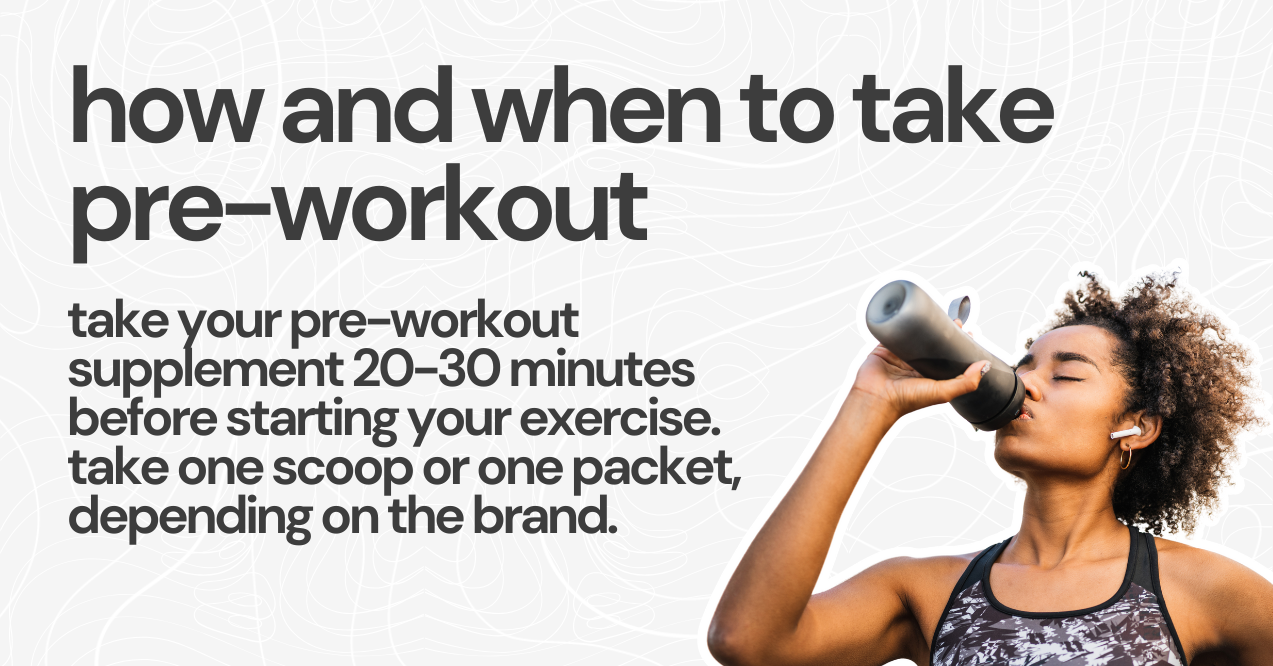
- Timing – Take pre-workout 20-30 minutes before exercise to allow the ingredients time to take effect.
- Dosage – Start with the recommended serving size on the product label, usually one scoop or packet, depending on the brand.
- Frequency – Most people use pre-workout 3-5 times per week on training days. Cycling off periodically helps maintain its effectiveness.
How Many Scoops of Pre Workout Should I Take?
- Beginners – Stick to one scoop or less, as most pre-workouts are effective with a single serving.
- Adjustments – You can modify your intake based on your body’s response, but never exceed the maximum dosage on the label.
How Long Does It Take Pre Workout to Kick In and Last?
So, how long does pre workout last? Pre-workouts for beginners typically start within 15-30 minutes after consumption. The duration can vary, but most people experience the effects for 1-3 hours. Factors like individual metabolism, ingredient composition, and dosage can influence how long the effects last.
But does pre workout expire? Pre-workout supplements do have a shelf life. While they don’t spoil in the traditional sense, their potency can decrease over time. Check the expiration date on your product and store it properly to maintain its effectiveness.
Can I Take Pre Workout Without Working Out?
Taking pre workout without working out isn’t recommended. These supplements are designed to enhance workout performance and may cause unwanted side effects if consumed without physical activity.
Should You Take Pre Workout Before Running? For cardio activities like running, pre-workout can be beneficial. However, the type and intensity of your workout should guide your choice. For high-intensity workouts like HIIT, a balanced pre-workout snack might be more appropriate than a supplement. Learn what to eat before a HIIT workout for optimal performance.
Can You Take Pre Workout Twice a Day?
- Not advised – Taking pre-workout twice a day can lead to excessive caffeine intake and potential side effects like jitters, insomnia, or digestive issues.
- Alternative options – If you have multiple workouts, consider a balanced meal or a light snack for sustained energy.
Risks and Side Effects of Pre-Workout
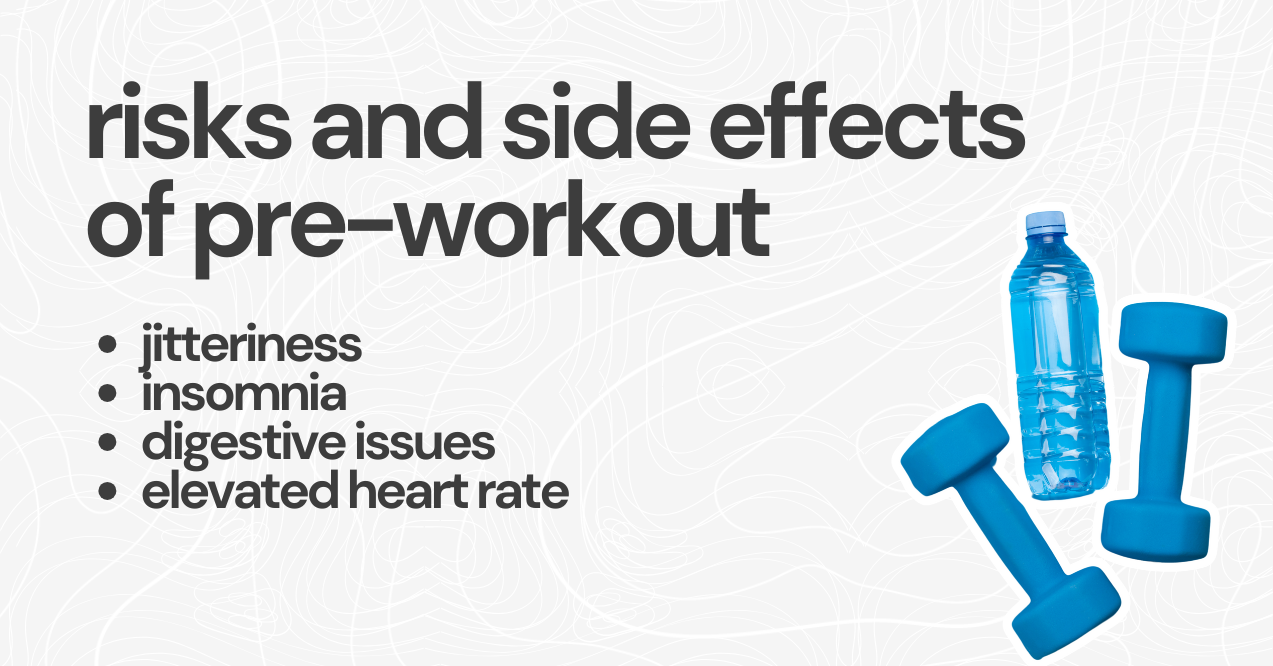
While pre-workout supplements can boost your exercise performance, they may come with some side effects. Here are common pre workout for beginners side effects to be aware of:
- Jitteriness – The high caffeine content can cause feelings of nervousness or shakiness.
- Insomnia – Taking pre-workout too close to bedtime may disrupt your sleep patterns.
- Digestive issues – Some users experience nausea, cramping, or diarrhea.
- Elevated heart rate – Stimulants in pre-workout may increase your heart rate and blood pressure.
Myths/Misconceptions About Pre Workout.
Pre-workout supplements often spark debate, leading to plenty of myths and misconceptions. Let’s break down some of the most common ones and separate fact from fiction.
Does Pre Workout Break a Fast?
This depends on the specific pre-workout formula and your fasting goals. If you’re fasting for calorie restriction, many pre-workouts contain little to no calories, meaning they likely won’t have a significant impact. However, if your goal is gut rest or autophagy, consuming pre-workout could technically break the fast, even if it’s low in calories. Always check the label, consider your fasting objectives, and, if needed, use our intermittent fasting calculator to help align your intake with your fasting plan.
Does Pre Workout Give You Pimples?
There’s no direct scientific evidence linking pre-workout supplements to acne. However, some ingredients may indirectly affect skin health. So, Does Pre Workout Cause Acne? For instance, high doses of pre-workout for beginners have certain B vitamins or whey protein (if included) might influence hormone levels in some individuals. Staying hydrated and maintaining good skincare habits can help mitigate potential skin issues.
Is Pre Workout Bad for Your Heart?
For healthy adults, pre-workout supplements are generally safe when taken as directed. However, because they often contain high levels of caffeine and stimulants, they can temporarily increase heart rate and blood pressure. While this isn’t a major issue for most gym-goers, those with pre-existing heart conditions or sensitivities to stimulants should consult a healthcare provider before taking pre-workout to ensure it’s a safe option.
What if Pre Workout Makes You Itch?
If you’ve ever felt a tingling or itching sensation after taking pre-workout, you’re not alone. This effect, known as paresthesia, is caused by beta-alanine, a common ingredient that helps reduce muscle fatigue. The sensation is completely harmless and temporary, usually subsiding within an hour. If it bothers you, consider lower-dose beta-alanine pre-workouts or stimulant-free formulas to minimize the effect.
Can Pre Workout Cause Hair Loss?
There’s no scientific evidence directly linking pre-workout supplements to hair loss. However, some people worry about creatine, a common pre-workout ingredient, potentially increasing DHT levels, which are associated with male pattern baldness. Current research doesn’t support this concern for most users. Factors like genetics, overall diet, and stress play a much more significant role in hair health.
Does Pre Workout Have Calories?
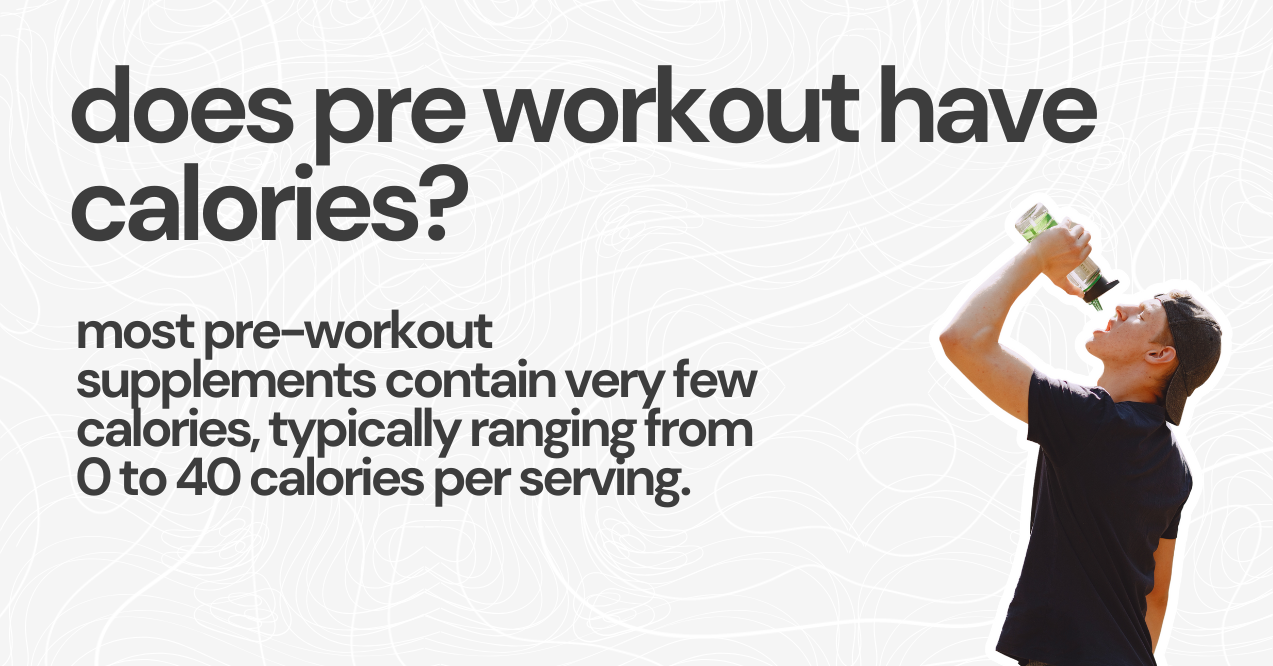
Most pre-workout supplements contain very few calories, typically ranging from 0 to 40 calories per serving. The exact amount depends on the formula and brand, but in general, pre-workouts are not designed to be a significant source of energy in terms of calories.
There are a few reasons why pre-workouts tend to be low in calories:
- Many key ingredients, such as caffeine, creatine, and beta-alanine, do not contain calories.
- To improve taste without adding extra calories, many brands use artificial sweeteners or natural alternatives like stevia.
- Some pre-workouts include a small amount of carbohydrates for quick energy, but the amount is usually minimal.
Since the main purpose of a pre-workout is to enhance performance rather than provide energy through calories, most formulas are designed to be as low-calorie as possible while still delivering key performance-boosting ingredients.
Pre-Workout and Other Supplements: Comparisons and Combinations
Pre-Workout vs. Other Supplements
Pre-Workout vs. Protein Powder
Purpose: Pre-workout energizes you before exercise, while protein powder supports muscle recovery and growth.
Timing: Take pre-workout 20-30 minutes before training; consume protein powder post-workout or throughout the day.
Pre-Workout vs. BCAAs
Purpose: Pre-workout boosts energy and focus; BCAAs primarily aid muscle recovery.
Timing: BCAAs can be taken before, during, or after workouts, while pre-workout is best before exercise.
Pre-Workout vs. Energy Drinks
Formulation: Pre-workouts contain targeted fitness ingredients; energy drinks are often just caffeine and sugar.
Effects: Pre-workouts offer more specific exercise benefits compared to the general energy boost from energy drinks.
Can You Mix Creatine with Pre-Workout?
Mixing creatine with pre-workout is generally safe and can be beneficial. Creatine supports muscle strength and power, complementing pre-workout’s energy-boosting effects. If your pre-workout doesn’t include creatine, adding it can enhance your overall supplement regimen.
Alternatives to Pre-Workout Supplements
If you’re looking for alternatives to traditional pre-workout supplements, there are plenty of natural options that can help boost energy, focus, and endurance.
Natural Pre-Workout Options
- Coffee – A quick and effective stimulant that can enhance alertness and performance. Drinking one cup about 30 minutes before a workout provides an energy boost without added ingredients.
- Green tea – A milder caffeine source that also contains antioxidants. It helps improve focus and provides a steady energy release without the jitters.
- Beetroot juice – Naturally rich in nitrates, beetroot juice can improve blood flow and oxygen delivery to muscles, enhancing endurance.
Pre-Workout Foods and Snacks
- Greek yogurt with berries – A combination of protein for muscle support and quick-acting carbohydrates for energy.
- Banana with nut butter – A balance of carbs for immediate fuel and healthy fats for sustained energy.
- Oatmeal with honey – Complex carbohydrates for lasting energy, with honey adding a quick glucose boost.
- Smoothies – A blend of fruits, leafy greens, and a protein source can make a nutrient-dense pre-workout drink. Try combinations like spinach, banana, and almond milk for a natural energy boost.
Choosing whole food alternatives can provide the fuel needed for an effective workout while avoiding artificial ingredients commonly found in supplements.
How to Store and Handle Pre-Workout Supplements
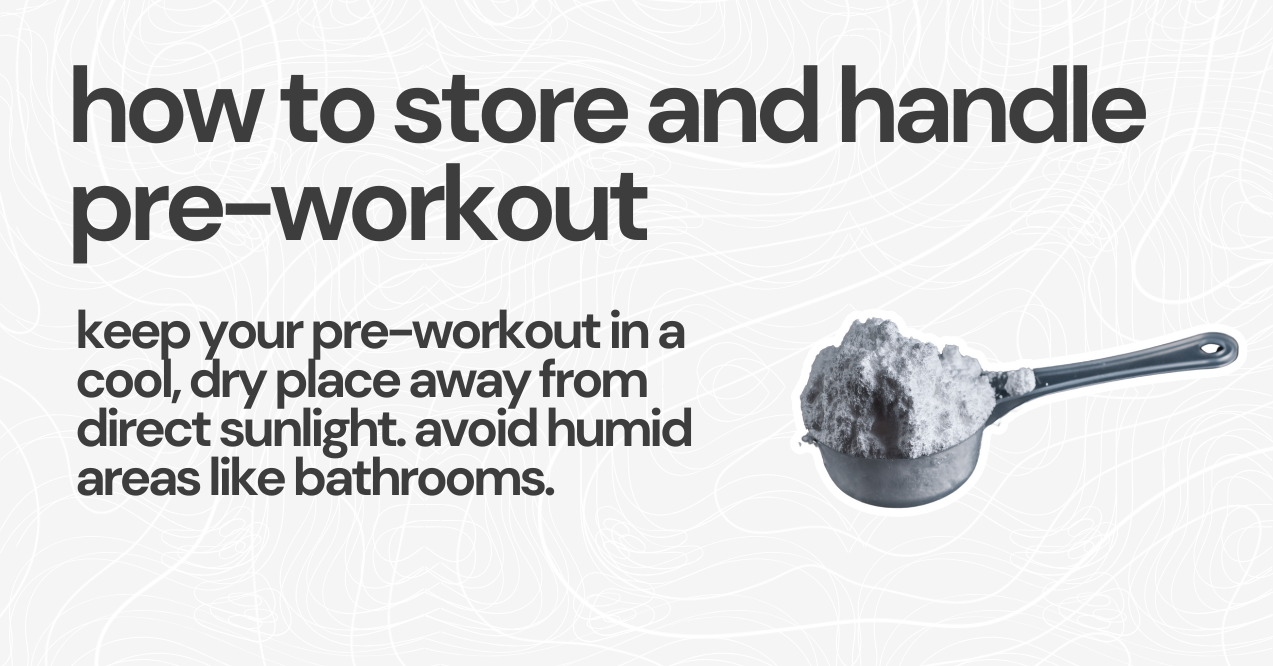
Keeping your pre-workout fresh and effective requires proper storage. Here are a few key tips:
- Store it in a cool, dry place away from direct sunlight. Avoid humid areas like bathrooms, as moisture can cause clumping.
- If your pre-workout comes with a scoop, keep it on top of the powder to help prevent moisture buildup.
- Check the best by date on the container. While pre-workout doesn’t spoil like food, its potency can decrease over time. Most are best used within one to two years of purchase.
- Watch for changes in color, smell, or texture. If it develops clumps, an off odor, or unusual discoloration, it’s best to replace it. When in doubt, it’s safer to discard and get a fresh container.
Proper storage ensures that your pre-workout remains effective and safe to use.
Conclusion
Pre-workout supplements can be a useful tool for beginners looking to improve energy, focus, and performance during exercise. When used correctly, they can enhance workouts without unwanted side effects. Understanding key ingredients, proper timing, and appropriate dosages allows you to get the most out of your supplement while minimizing risks.
For those who prefer a natural approach, options like coffee, green tea, and nutrient-rich snacks can provide similar benefits. Proper storage also ensures that your pre-workout remains fresh and effective over time.
With the right approach, pre-workout can be a valuable addition to your fitness routine, helping you stay motivated and perform at your best.
Pre-workout supplements are generally recommended for adults 18 and older. Teens and young adults should focus on proper nutrition and exercise habits before considering supplements. Always consult with a healthcare provider before starting any new supplement regimen, especially for younger individuals.
It’s generally not recommended to take pre-workout supplements during pregnancy. Many contain ingredients like caffeine and other stimulants that may affect fetal development. Pregnant women should consult their healthcare provider for safe exercise recommendations and stick to natural energy sources like balanced meals and light snacks.
Most pre-workouts contain minimal to no calories, so they typically won’t break a fast focused on calorie restriction. However, some ingredients may trigger an insulin response or affect autophagy. If maintaining a strict fast is crucial, consider caffeine-only options or natural alternatives like black coffee.
Advertisement. This site offers health, wellness, fitness and nutritional information and is designed for educational purposes only. You should not rely on this information as a substitute for, nor does it replace, professional medical advice, diagnosis, or treatment. If you have any concerns or questions about your health, you should always consult with a physician or other health-care professional. Do not disregard, avoid or delay obtaining medical or health related advice from your health-care professional because of something you may have read on this site. The use of any information provided on this site is solely at your own risk.
